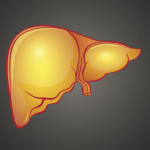Among people with HIV who don’t have advanced fibrosis (scarring) of the liver and thus wouldn’t normally be prone to developing hepatocellular carcinoma (HCC, the most common form of liver cancer), those with a higher and longer-lasting detectable viral load, as well as those with a low CD4 count, are at elevated risk for the serious malignancy.
Researchers studied medical records of HIV-positive veterans, almost all of them men, covering 1999 to 2015. This included about 2,500 people who had advanced liver fibrosis or cirrhosis and nearly 30,000 who lacked fibrosis or had a mild or moderate case.
During the study’s follow-up period, there were 278 diagnoses of HCC. Forty-three percent of these liver cancer cases—a remarkably high proportion—developed in people who did not have advanced fibrosis or cirrhosis.
Liver cancer risk was not tied to viral load or CD4 count in those with advanced fibrosis or cirrhosis. But among those without such severe liver damage, each 10-fold increase in viral load was tied to a 24 percent higher risk of liver cancer. Having a viral load of 500 or above for at least a year was associated with a 57 percent increased risk, and having a CD4 count below 200 was tied to a 58 to 78 percent higher risk of the malignancy.
The study’s lead author, Jessie Torgersen, MD, an infectious disease specialist at the University of Pennsylvania in Philadelphia, said her findings "suggest that achieving and maintaining HIV suppression could mitigate the risk of HCC prior to developing cirrhosis. For patients and providers, this means that effective HIV treatment, in addition to treatment for chronic hepatitis C and hepatitis B, is of paramount importance in reducing the risk of HCC.”







1 Comment
1 Comment